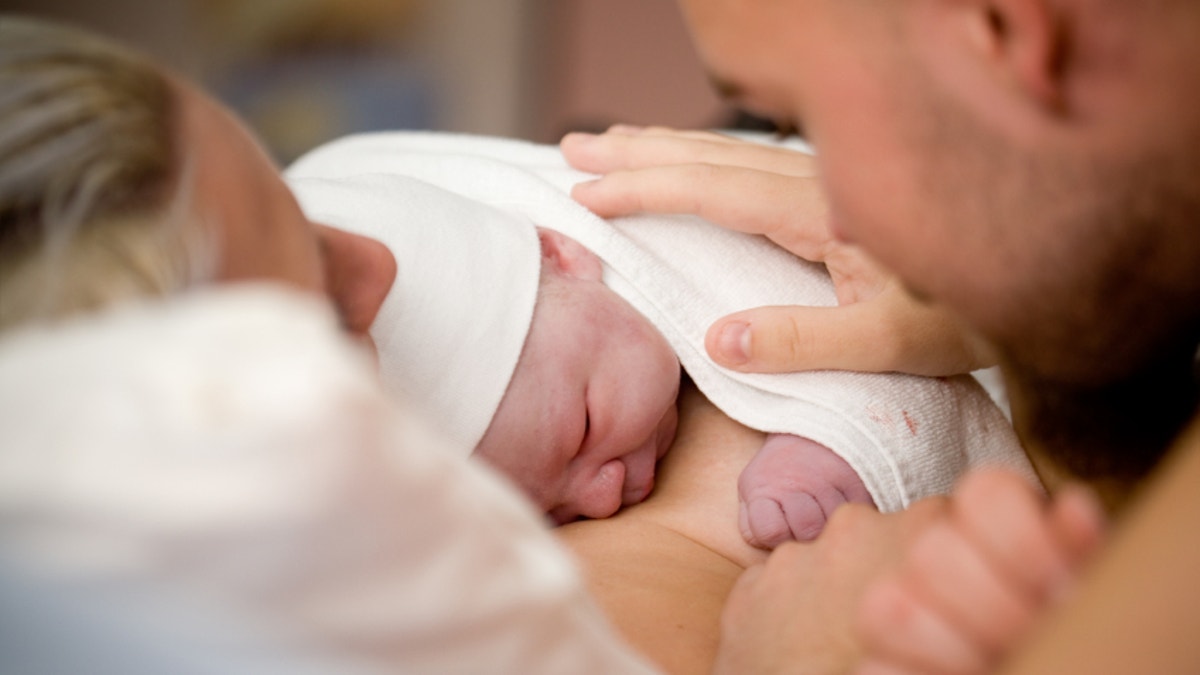
Newborn baby girl right after delivery, shallow focus
Babies born by C-section are twice as likely to be overweight in later childhood, according to new research published Thursday.
Scientists from Boston's Children's Hospital studied 1,255 babies born in the Boston area between 1999 and 2002 and found that just under 16 percent of the children delivered by C-section were obese by the age of three, compared with 7.5 percent born vaginally.
Dr. Susanna Huh, who led the study, said, "An association between caesarian birth and increased risk of childhood obesity would provide an important rationale to avoid non-medically indicated caesarian."
Differences in gut bacteria between newborns delivered by C-section and those born vaginally could be behind the weight gain, the researchers suggested in the Archives of Disease in Childhood journal.
Previous research has shown that children born by C-section have larger amounts of Firmicutes bacteria -- which also is generally found in higher levels in obese adults.
Gut bacteria influence the development of obesity by increasing energy extracted from food, and by stimulating cells to boost insulin resistance, inflammation and fat deposits, the authors suggested.
The findings took into consideration factors such as the mother's weight, the baby's size and the length of time they were breastfed.
"Expectant mothers choosing caesarian delivery in the absence of an obstetrical or medical indication should be aware that their children may have a higher risk of obesity," they wrote.
Nearly one of every three American babies is now born by C-section, watchdog publication Consumer Reports said this month.
